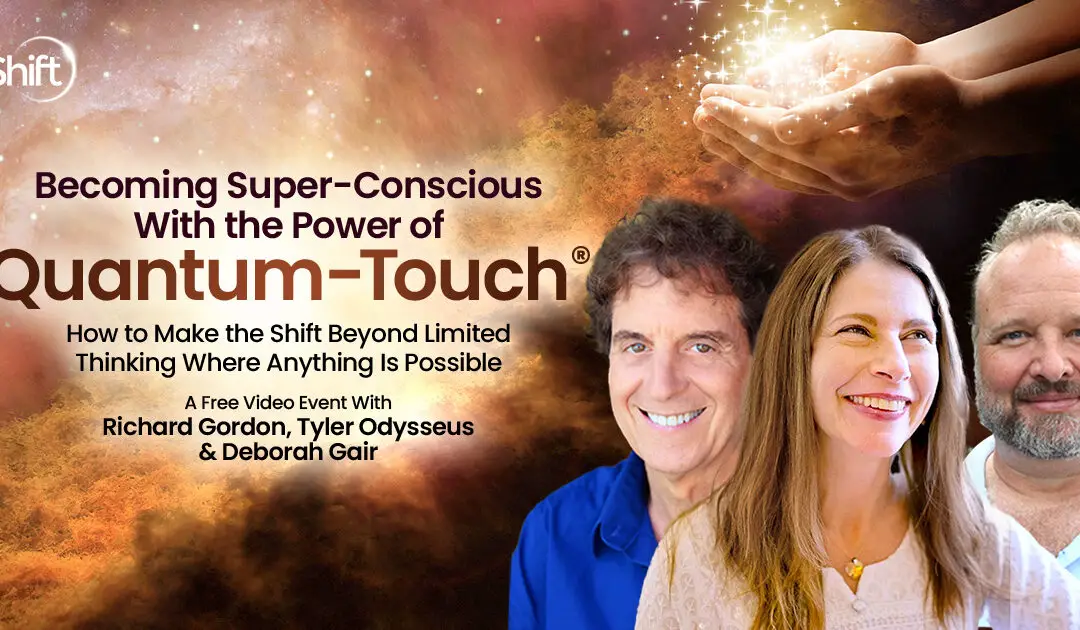Guest Writer for Wake Up World
Polyphenol is a term for the several thousand plant-based molecules that have antioxidant properties. The health benefits of antioxidants are well known! Besides their antioxidant nature, polyphenols also help regulating enzyme function and stimulate cell receptors.[1]
Polyphenols are divided into four primary groups: phenolic acids, lignans, stilbenes, and flavonoids.[2] Plants with polyphenol activity have played a major role in traditional Chinese and Ayurvedic medicine for centuries. With an anti-inflammatory action, support for the liver, and promoting normal circulatory health, their benefits are plentiful.
6 Benefits of Polyphenol Consumption
Polyphenols are available in a wide variety of unprocessed raw vegetables and fruits. With the explosion of polyphenol research and the extensive discussion in scientific journals, potential therapeutic applications for these compounds have been discovered. Here are just a few of the benefits related to polyphenols.
1. Skin Protection
The consumption of fruits, vegetables, legumes, nuts and seeds, and antioxidant-rich beverages may protect the skin from UV radiation. Resveratrol, a compound in red wine, has active polyphenic qualities that aid in protecting the skin. Other compounds, like silymarin, genistein, delphinidin, pomegranate fruit extract, grape seed, proanthocyanidins, and polyphenols, may also ward off UV damage.[3]
2. Brain Health
The antioxidant effect of polyphenols offers holistic support for the aging neurological system, possibly combating the early onset of dementia-like symptoms. Polyphenols have been linked with lower risk for Alzheimer’s disease, stroke, multiple sclerosis, Parkinson’s disease, and Huntington’s disease. Researchers also note that polyphenols offer a holistic approach to neurological health by addressing the complex physiology involved with certain brain disorders.[4]
3. Supports Normal Blood Sugar
Glucose management is an issue for many people in the United States, with about 1 out of every 10 people having type II diabetes or prediabetes. Flavonoids, a group of polyphenols, have displayed beneficial effects for supporting normal blood sugar. These flavonoids, typically found in foods like tea and cocoa, appear to enhance insulin secretion, reduce cell death, regulate glucose metabolism, improve insulin sensitivity, reduce oxidative stress, and increase glucose uptake by cells.[5]
4. Nutritional Support for Cancer?
While polyphenols won’t cure cancer, research has explored their potential therapeutic role. Some polyphenols appear to offer protection against carcinogens – cancer-causing substances present in food and the environment. [6] [7] Although coffee raises an eyebrow among some health-conscious consumers, research suggests that the polyphenols in coffee may help to reduce the risk of colorectal cancer. [8]
5. Blood Pressure
Studies indicate flavonoids, like catechins, anthocyanins, and phenolic acids, are important dietary compounds that support normal blood pressure by inhibiting the physiological mechanisms which trigger hypertension. [9]
6. Cardiovascular Health
Polyphenols found in cocoa have been shown to reduce cardiovascular stress through the inhibition of LDL cholesterol, or “bad” cholesterol. These compounds also increase the vasodilation of blood vessels to promote circulation.[10] Organic dark chocolate, 72 percent cacao and above, is where the benefits have been found. Cheap candy is not good for your health.
The Best Sources of Polyphenols
Natural foods like vegetables, fruits, tea, coffee, and red wine are some of the primary sources of polyphenols. Citrus fruits contain specific types of polyphenols, like flavanones, while other fruits contain a wider range of polyphenols.
It’s believed that growing conditions play a substantial role in polyphenol content. To ensure the best and most potent sources of polyphenols from foods, choose produce that is organic and non-GMO. Local foods may also be fresher and more abundant in their natural antioxidant compounds compared with imported varieties.
Article References
- Elliott Middleton Jr., Chithan Kandaswami, and Theoharis C. Theoharides. The Effects of Plant Flavonoids on Mammalian Cells:Implications for Inflammation, Heart Disease, and Cancer. Pharmacological Reviews December 1, 2000 vol. 52 no. 4 673-751.
- Claudine Manach, Augustin Scalbert, Christine Morand, Christian Rémésy, and Liliana Jiménez. Polyphenols: food sources and bioavailability. Am J Clin Nutr May 2004 vol. 79 no. 5 727-747.
- Afaq F, Katiyar SK. Polyphenols: skin photoprotection and inhibition of photocarcinogenesis. Mini Rev Med Chem. 2011 Dec;11(14):1200-15.
- Bhullar KS, Rupasinghe HP. Polyphenols: multipotent therapeutic agents in neurodegenerative diseases. Oxid Med Cell Longev. 2013;2013:891748. doi: 10.1155/2013/891748.
- Babu PV, Liu D, Gilbert ER. Recent advances in understanding the anti-diabetic actions of dietary flavonoids. J Nutr Biochem. 2013 Sep 9. pii: S0955-2863(13)00127-7. doi: 10.1016/j.jnutbio.2013.06.003.
- Moon YJ, Wang X, Morris ME. Dietary flavonoids: effects on xenobiotic and carcinogen metabolism. Toxicology in Vitro. 2006 March;20(2):187-201.
- Lautraite S, Musonda AC, Doehmer J, Edwards GO, Chipman JK. Flavonoids inhibit genetic toxicity produced by carcinogens in cells expressing CYP1A2 and CYP1A1. Mutagenesis. 2002 January;17(1):45-53.
- Wang ZJ, Ohnaka K, Morita M, Toyomura K, Kono S, Ueki T, Tanaka M, Kakeji Y, Maehara Y, Okamura T, Ikejiri K, Futami K, Maekawa T, Yasunami Y, Takenaka K, Ichimiya H, Terasaka R. Dietary polyphenols and colorectal cancer risk: the Fukuoka colorectal cancer study. World J Gastroenterol. 2013 May 7;19(17):2683-90. doi: 10.3748/wjg.v19.i17.2683.
- Huang WY, Davidge ST, Wu J. Bioactive natural constituents from food sources-potential use in hypertension prevention and treatment. Crit Rev Food Sci Nutr. 2013;53(6):615-30. doi: 10.1080/10408398.2010.550071.
- Arranz S, Valderas-Martinez P, Chiva-Blanch G, Casas R, Urpi-Sarda M, Lamuela-Raventos RM, Estruch R. Cardioprotective effects of cocoa: clinical evidence from randomized clinical intervention trials in humans. Mol Nutr Food Res. 2013 Jun;57(6):936-47. doi: 10.1002/mnfr.201200595.
†Results may vary. Information and statements made are for education purposes and are not intended to replace the advice of your doctor. If you have a severe medical condition or health concern, see your physician.
This article first appeared on Global Healing Centre
About the author:
Dr. Edward F. Group III (DC, ND, DACBN, DCBCN, DABFM) founded Global Healing Center in 1998 with the goal of providing the highest quality natural health information and products. He is world-renowned for his research on the root cause of disease. Under his leadership, Global Healing Center earned recognition as one of the largest natural and organic health resources in the world. Dr. Group is a veteran of the United States Army and has attended both Harvard and MIT business schools. He is a best-selling author and a frequent guest on radio and television programs, documentary films, and in major publications.
Dr. Group centers his philosophy around the understanding that the root cause of disease stems from the accumulation of toxins in the body and is exacerbated by daily exposure to a toxic living environment. He believes it is his personal mission to teach and promote philosophies that produce good health, a clean environment, and positive thinking. This, he believes, can restore happiness and love to the world.
For more, please visit Global Healing Center.
Are limiting beliefs holding you back? Most of us carry subconscious narratives that keep us from realizing our dreams. Quantum-Touch, a revolutionary energy healing technique, offers a pathway to dismantle these barriers. By combining breathing and body-awareness practices, you can tap into your super-consciousness and unlock your true potential.
During this free online event, you’ll experience a guided Quantum-Touch practice that provides an energetic reset, helping you release self-doubt and embrace abundance. Learn how to connect with your deepest self and discover what instructor Deborah calls “YOU-ness” — a profound inner knowing that guides you toward clarity and confidence.
This is your opportunity to transform your life and leave limitations behind. Don’t wait — RSVP now to join this powerful session and step into a world of boundless possibilities!
 If you’ve found value in our articles, we’d greatly appreciate your support by purchasing Mindful Meditation Techniques for Kids—A Practical Guide for Adults to Empower Kids with the Gift of Inner Peace and Resilience for Life.
If you’ve found value in our articles, we’d greatly appreciate your support by purchasing Mindful Meditation Techniques for Kids—A Practical Guide for Adults to Empower Kids with the Gift of Inner Peace and Resilience for Life.
In the spirit of mindfulness, we encourage you to choose the paperback version. Delve into its pages away from screen glare and notifications, allowing yourself to fully immerse in the transformative practices within. The physical book enriches the learning process and serves as a tangible commitment to mindfulness, easily shared among family and friends.
Over the past few years, Wake Up World has faced significant online censorship, impacting our financial ability to stay online. Instead of soliciting donations, we’re exploring win-win solutions with our readers to remain financially viable. Moving into book publishing, we hope to secure ongoing funds to continue our mission. With over 8,500 articles published in the past 13 years, we are committed to keeping our content free and accessible to everyone without resorting to a paywall.









